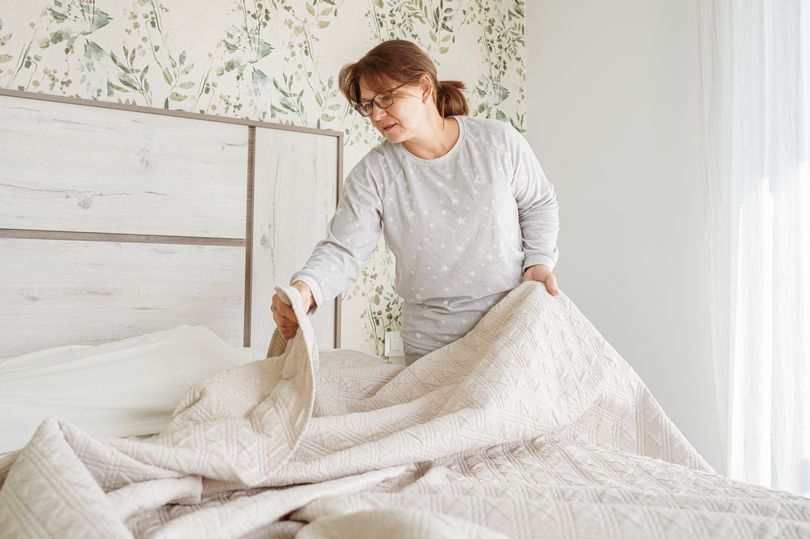I'm a Microbiologist – Here's How Often to Wash Your Bedding

The Importance of Regular Bedding Cleaning
Bedding plays a crucial role in our daily lives, providing comfort and support during sleep. However, many people overlook the fact that their beds can become breeding grounds for bacteria, fungi, and allergens. An expert in clinical microbiology has highlighted how frequently we should be washing our bedding to maintain hygiene and protect our health.
Understanding the Microbial Presence in Beds
Each night, as we sleep, we shed hundreds of thousands of skin cells, excrete oils from our sebaceous glands, and sweat up to half a pint of fluid. These substances create an environment where millions of bacteria and fungi can thrive. According to Primrose Freestone, a senior lecturer in clinical microbiology at the University of Leicester, these microbes can transfer onto sheets, pillows, and duvets as we move during the night.
The sweat that we produce may initially be odourless, but bacteria on our skin, particularly staphylococci, break it down into smelly byproducts. This is often why you wake up with body odour, even if you went to bed clean. Additionally, while we are outdoors, our bodies and hair gather pollutants, dust, pollen, and other allergens that are then transferred onto our bedding. These can trigger allergies, affect breathing, and contribute to poor air quality in the bedroom.
Dust Mites and Fungi: Hidden Threats
The nightly shedding of skin cells also serves as nutrition for microscopic entities known as dust mites. These organisms prosper within the moist, warm atmosphere found in mattresses and bedding. While the mites themselves aren't dangerous, their faecal droppings are potent allergens that can aggravate eczema, asthma, and allergic rhinitis. Fungi also find your bed appealing, with some species, like Aspergillus fumigatus, detected in used bed pillows and capable of causing serious lung infections, particularly in people with weakened immune systems.
Recommended Washing Schedules for Different Bedding Items
Primrose Freestone provided specific advice on how and when to wash different types of bedding:
Sheets and Pillowcases
- Frequency: Weekly, or every three to four days if you’ve been ill, sweat heavily, or share your bed with pets.
- Washing: Wash at 60°C or higher with detergent to kill bacteria and dust mites. For deeper sanitisation, tumble dry or iron.
- Pillows: To target dust mites inside pillows, freeze for at least eight hours.
Mattresses
- Frequency: Vacuum at least weekly and air the mattress every few days.
- Reason: Sweat increases moisture levels, creating a breeding ground for mites.
- Recommendation: Use a plastic or allergen-proof mattress protector and replace the mattress every seven years to maintain hygiene and support.
Pillow Interiors
- Frequency: Wash them every four to six months (check the label first).
- Reason: Internal filling can harbour bacteria and mould.
- Washing: Wash thoroughly and dry completely to avoid fungal growth.
Blankets and Duvet Covers
- Frequency: Wash these every two weeks, or more often if pets sleep on them.
- Reason: They trap skin cells, sweat, and allergens.
- Washing: Wash at 60°C or as high as the care label allows. Some guidance recommends treating these like towels: regular and hot washes keep them hygienic.
Duvets
- Frequency: Wash these every three to four months, depending on usage and whether pets or children share your bed.
- Reason: Even with a cover, body oils and mites eventually seep into the filling.
- Washing: Check the label: many duvets are machine-washable, others may require professional cleaning.
The Health Benefits of Regular Bedding Cleaning
Primrose Freestone concluded by emphasising the importance of regular laundering. “Your bed may look clean – but it’s teeming with microbes, allergens, mites, and irritants that build up fast. Washing your bedding isn’t just about keeping things fresh; it’s a matter of health.”
Regular laundering removes the biological soup of sweat, skin, dust, and microbes, which helps reduce allergic reactions, prevent infections, and keep odours at bay. As research continues to show the profound effect of sleep on everything from heart health to mental clarity, a hygienic sleep environment is a small but powerful investment in your well-being.

Posting Komentar untuk "I'm a Microbiologist – Here's How Often to Wash Your Bedding"